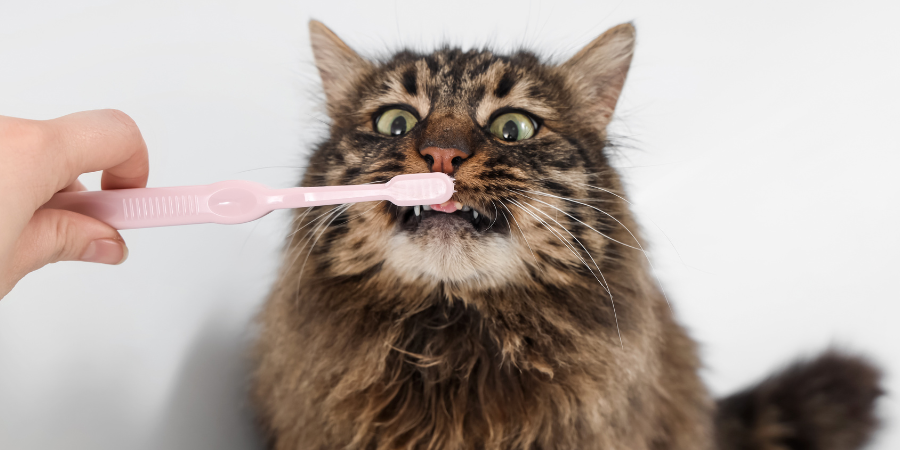Choose the right dental cleaning tools: cat dental cleaning tools recommended
- Finger-type toothbrush: flexible control of strength, suitable for initial training.
- Small pet toothbrush: The bristles are super soft and fit the dental arch.
- Special cat toothpaste: attractive taste, safe to swallow.
- VOHC certified teeth cleaning snacks: help remove dental plaque.
Stress-Free Cat Teeth Brushing Tutorial: 5 Steps
- Familiarize yourself with the tools and environment: Snacks and toothbrushes will appear at a fixed time every day.
- Desensitizing oral touch: From cheek caressing to lip flicking.
- Introduce toothbrush contact: Apply a small amount of toothpaste to the outside of the front teeth.
- Segmented tooth brushing training: brush the canine teeth first and then expand to the back teeth.
- Complete process combination: Gently circle at 45 degrees, control within 30 seconds.
Steps to Preventing Dental Plaque in Cats
Dental plaque is generated within 24 hours and calcified into tartar within 3 days. Teeth must be brushed every day or 3-4 times a week, and professional teeth cleaning and examination should be performed once a year.
| frequency | Effect | suggestion |
|---|---|---|
| Once a day | Gold standard, best prevention | Combine with teeth cleaning snacks to strengthen |
| 3–4 times a week | Basic Plaque Control | Can be replaced when daily use is not possible |
| Once a year | Professional teeth cleaning under general anesthesia | Subgingival calculus and X-ray examination |
FAQ
How often should you brush your cat’s teeth?
The ideal time is once a day. If this is not possible, 3-4 times a week can achieve basic control.
What should I do if my cat doesn’t cooperate?
You can first use tooth cleaning water or tooth cleaning snacks, and use it with a fingertip toothbrush to gradually reduce sensitivity.
Start implementing this stress-free cat teeth brushing tutorial immediately and get regular professional teeth cleanings to protect your cat’s oral health!

